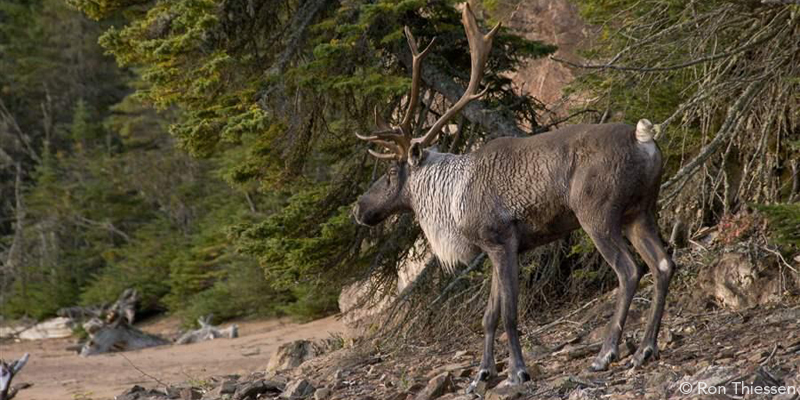The following is an excerpt from an op-ed recently published in the Hill Times by Dr. John Jacobs and Dr. Nancy Turner, both of whom are members of the International Boreal Conservation Science Panel. You can see the op-ed in full here.
Canada has opportunity to become a global leader in conservation
If Canada takes immediate action and commits significant new funds to securing the bold, large-scale protections that the science and Indigenous knowledge call for, it can become a global leader in conservation and help provide and sustain clean water, vibrant lands and cultures and a more stable climate for generations to come.
PUBLISHED : Hill Times, Monday, Nov. 13, 2017 12:00 AM
ST. JOHN’S—Bright yellow and slate blue Canada warblers have been flying out of the boreal forest in the past few months heading south for the winter. These tiny songbirds are strong enough to make a thousand-mile, nonstop flight over the Atlantic Ocean, yet they are struggling in the face of another challenge: the disappearance of wild places along their migration route. As human development encroaches on their habitat, the Canada warbler population has dropped by 80 per cent in recent decades.
They are not alone: caribou, wolverines, salmon, and countless other species show perilous declines. The demise of endangered animals may seem far removed from our daily lives, but their fate is deeply intertwined with ours. The landscapes and ecosystems that sustain wild animals also provide us with clean air and water, plentiful food and medicine, and a stable climate.
Both western science and Indigenous people’s knowledge show that the rich diversity of life we all depend upon is dwindling rapidly, and we must reverse these trends while we can. Fortunately, Canada has an opportunity to play a vital role right now in preserving biodiversity for the planet and the health of future generations.
Scientists have known for some time our planet has shifted into an era of mass extinction, but now we see a dramatic acceleration: the rate of loss is a thousand times greater than it’s been in millions of years. One new study found that 60 per cent of all large carnivores and herbivores are threatened with extinction, and another reported that up to 50 per cent of individual animals have vanished just in the past few decades.
Research confirms that habitat destruction—from mining, logging, dams, road construction, and other forms of large-scale development—is the primary driver of this crisis. It also confirms that conserving large, vibrant intact landscapes gives animals and plants—and we humans—the best opportunity to thrive. That is why nations of the world came together in 2010 under the UN Convention on Biodiversity and pledged to protect at least 17 per cent of their lands by 2020.
Although progress to date has been slow in recent years Canada has recently deepened its commitment to reaching and exceeding its international targets. If it takes ambitious, comprehensive action, it will become a global leader in conservation.
Canada has a unique opportunity to point the way forward.
In a world that has lost 80 percent of its original forests, Canada is home to more intact forest landscape than any place on Earth. The Boreal Forest, for instance, stretches from the Yukon and northern British Columbia to Newfoundland and Labrador and rivals the Amazon in global ecological significance. It holds about 25 percent of the planet’s wetlands and provides unbroken stretches of habitat for wildlife.
Canada’s Boreal Forest also serves as a giant shield in the fight against climate change. It captures and stores enormous amounts of carbon, preventing it from escaping into the atmosphere. The boreal region currently stores the carbon equivalent of more than 34 years of global greenhouse gas emissions from all smokestacks and tailpipes.
(To read the rest of the op-ed, click here to read it on the Hill Times site.)
John Jacobs, who has more than 40 years of research experience in the Canadian Arctic and Boreal regions, is a retired professor of geography at Memorial University of Newfoundland. Nancy J. Turner is a professor emerita at the school of environmental studies at the University of Victoria and 2015 Pierre Elliott Trudeau Fellow.


